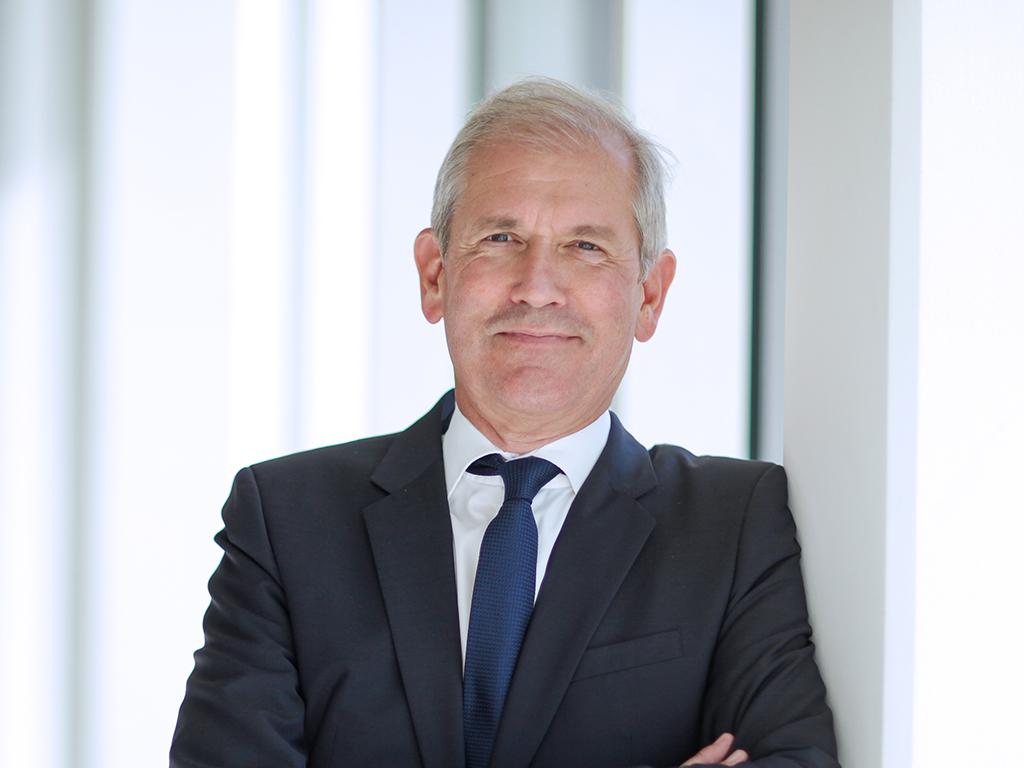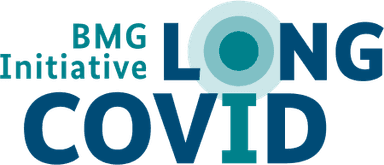Note: The following text is a guest article. They reflect the personal views of the author. The article is not an expression of opinion by the Federal Ministry of Health.
Guest article: Prof. Dr. Dr. h.c. mult. Jens Scholz
Prof. Dr. Dr. h. c. mult. Jens Scholz, 1st Chairman of the Association of University Hospitals in Germany, states in this article the reasons why, from the point of view of the university hospitals, research is particularly necessary in order to provide patients suffering from Long COVID with the best possible care.
Published on: 09/08/2023

© Copyright: VUD
Research and improved treatment - the pivotal task of university hospitals to help patients with Long COVID
There are many people suffering from the consequences of a COVID infection. It still remains a challenge for our society as a whole to provide them with the best possible care. The key contribution of the university hospitals is their research into the clinical pictures and the development of therapeutic approaches. It is essential to closely integrate health care and research in order to cope with pandemics, crises in health care in general and new diseases such as Long COVID.
In recent years, there has been no other disease like COVID-19 that has so drastically posed a challenge to medicine and continues to do so with its consequences. No other disease has put the resilience and performance of the health system to such a test. And no disease has made it abundantly clear how important it is that critical thinking and the synopsis of symptoms and data go hand in hand in research and medical education.
Every infection carries the risk of long-term damage. This is why the question of precise diagnostic criteria, scientifically based findings and risk factors with the aim of finding forms of therapy becomes so important. In Long COVID, any system of organs can be affected and symptoms can persist for a long time. Recent data suggests that patients can still exhibit symptoms two years after being infected. In general, a distinction must be made between clearly definable secondary diseases and more diffuse symptoms such as fatigue, "brain fog", memory loss or the less common ME/CFS. Therefore, the diagnosis of Long COVID is still tricky, the clinical picture is hardly uniform. Also, differentiation from other diseases is not always that clear-cut. The care, research and further development of therapies thus remains a challenge. And it is socially relevant, because acute COVID-19 disease can result in longer-term physical and psychological impairments.1
Role and competencies of university hospitals
It is an exceptional medical occurrence that so many people simultaneously fall ill with a disease that is still poorly understood and that also entails so many symptoms. University hospitals are predestined to quickly generate expertise and experience here, while also encouraging an interdisciplinary discussion of questions between specialists. University medicine also seeks direct dialogue with doctors who have their own practices, so that they can advise their patients and guide them along the right path to the necessary diagnostics and therapy. This sector-linking care can be exemplary for structures that will be networked and collaborative in the future, just like the work of the university hospitals during the pandemic. It is important that the players in the health care system continue to pursue this development together.
In the meantime, all university hospitals have started to offer outpatient long-COVID care at their locations within the framework of university outpatient clinics. Special outpatient clinics at university hospitals are generally the point of contact for severely affected patients with complex symptoms because they bring together different medical disciplines. Patients benefit from the interdisciplinary work and the comprehensive expertise. This is because university hospitals especially look for interdisciplinary solutions - an approach that is particularly necessary in Long COVID. In addition, university hospitals offer comprehensive coordination and advisory expertise for other hospitals and, above all, also medical practices. With these offerings, they make an important contribution to improving care beyond the walls of the individual university hospital as well.
Research within the network
All University Medicine sites are also linked together in COVID-19 research through the Network University Medicine (NUM), funded by the Federal Ministry of Education and Research (BMBF). The NUM aims to bring together and evaluate action plans, diagnostic and treatment strategies. The horizontal networking of university hospitals in research means added value for each individual university hospital and also added value for the entire health care system. The bundling of competencies and resources is designed to create structures and processes in the hospitals that ensure the best possible care for patients suffering from COVID-19. For the best possible medical care, it is extremely important to learn as fast as possible and to communicate regarding procedures and best practices. It is vital that maximum possible know-how is generated from the pandemic to prepare for future challenges.
Research into causes and therapies
Due to the fact that COVID-19 is not yet fully understood and that little is known about Long COVID, the Federal Ministry of Education and Research has recognised that there is tremendous unmet need for scientific knowledge about the complex symptoms and the equally complex care that is required. The guideline "Funding of research projects on late symptoms of COVID-19 (Long COVID)" aims to fund numerous projects at various university hospitals in Germany. The objective here is to promptly tap into the scientific knowledge on Long COVID and make it accessible for implementation and use in practice. These projects include research on post-COVID-associated immune dysfunction, on occupational therapy intervention, on Long COVID in children, on the psychosocial needs of patients, on sport and Long COVID syndrome, or studies on limitations with respect to participation and quality of life. There are also studies on the effects of sequelae on health status and quality of life, on fatigue syndrome, on the identification of long-term consequences of COVID-19 in the form of pulmonary and neurocognitive disorders, clinical studies investigating the late effects of SARS-CoV-2 infection in young people, or health care studies with a focus on lung function - to name just a few projects of the university hospitals in Germany.2
More funding for research
In order to be able to help those affected in a good and comprehensive way, many unanswered questions still need to be answered. Intensive research is therefore needed, especially on the causes and treatment of Long COVID. The funding of research projects on late symptoms must aim to tap into the state of scientific knowledge comprehensively and promptly and make it accessible for application in practice. The best possible courses of treatment must be effectively communicated. Interdisciplinarity, intensification of therapy research and education remain the most important measures towards providing consistently better care for Long COVID.
University medicine in Germany will continue to focus on generating scientific knowledge in order to better understand disease patterns and develop new therapeutic approaches - for the benefit of all patients. It is important and right to provide sufficient support now to further boost research and improve care. The need for action has also been recognised politically, as the Federal Ministry of Health's Long COVID initiative clearly shows.
Vita
Prof. Dr. Dr. h.c. mult. Jens Scholz has been 1st Chairman of the German Medical Association (VUD) since 1 July 2021. He has been a member of the VUD Board since 2015. Scholz, a professor of anaesthesiology, has been Chairman of the Board of the University Hospital of Schleswig-Holstein since 2009. Previously, he worked at the University Hospital Eppendorf (UKE) as a C-3 professor. In the year 2000, he was appointed Professor (C 4) of Anaesthesiology and Director of the Clinic for Anaesthesiology and Operative Intensive Care Medicine at the University Hospital Schleswig-Holstein, Kiel Campus, by the Christian-Albrechts-Universität zu Kiel. Professor Scholz is an Executive MBA (University of St. Gallen) and a member of the German Academy of Sciences Leopoldina.
